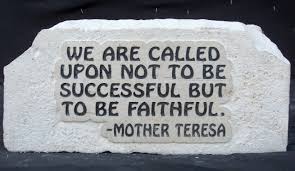Who do you think you are?
I’m not asking that in the sense that you usually hear it. Usually this is a rhetorical question we toss out at somebody who is getting WAY out of line.
But seriously, who DO you think you are? What kind of adjectives would you use to describe yourself?
Unfortunately, the words many people would think of are not flattering. “Depressed.” “Worthless.” “Insignificant.” “Damaged goods.” “Failure.” “Unlovable.”
This matters, because how we see ourselves is a major factor in determining how we interact with others. People who have a low self-image are not likely to engage in a healthy way, if at all, with the world around them.

Self-image is a complex thing.
It is the sum total of every attitude we have ever had about ourselves, but also everything we have ever HEARD about ourselves. Some people are just jerks that like to pick on us and beat down our self-image. Sometimes, however, we suffer long-term consequences for something we actually did do.
If any of this sounds familiar to you, may I offer you some encouragement, courtesy of St. Paul?
And his fullness fills you, even though you were once like corpses, dead in your sins and offenses. It wasn’t that long ago that you lived in the religion, customs, and values of this world, obeying the dark ruler of the earthly realm who fills the atmosphere with his authority, and works diligently in the hearts of those who are disobedient to the truth of God. The corruption that was in us from birth was expressed through the deeds and desires of our self – life. We lived by whatever natural cravings and thoughts our minds dictated, living as rebellious children subject to God’s wrath like everyone else.
But God still loved us with such great love. He is so rich in compassion and mercy. Even when we were dead and doomed in our many sins, he united us into the very life of Christ and saved us by his wonderful grace! He raised us up with Christ the exalted One, and we ascended with him into the glorious perfection and authority of the heavenly realm, for we are now co-seated as one with Christ!
Throughout the coming ages we will be the visible display of the infinite, limitless riches of his grace and kindness, which was showered upon us in Jesus Christ. For it was only through this wonderful grace that we believed in him. Nothing we did could ever earn this salvation, for it was the gracious gift from God that brought us to Christ! So no one will ever be able to boast, for salvation is never a reward for good works or human striving.
We have become his poetry, a re-created people that will fulfill the destiny he has given each of us, for we are joined to Jesus, the Anointed One. Even before we were born, God planned in advance our destiny and the good works we would do to fulfill it! Ephesians 2:1-10 (TPT)
Good enough?
Our worth does not come from what we have done (or failed to do) or from anyone’s opinion of us. We have value simply because we were created in the image of the One who is the most worthy of all. We didn’t have to clean ourselves up or check of a list of criteria or accomplishments to be “good enough” to live this life. Rather, we have this life to live because we are already counted as good enough by the only One who matters!
We were made in the image of the all-sufficient God; therefore, what we have in our hands will always be sufficient for the tasks ahead of us. Because when we were created, so was all of the work that God had planned out for our entire lives. We are all wired to be proficient at and passionate about certain things. And although we do have the free will to choose whether or not we want to walk on this path that has been so scrupulously marked out for us, it always seems to go better for us when we do.
Pass/Fail
Will we get off the path from time to time? Of course we will. We’re humans. We do that. Remember, though, that the value of your life is not determined by how many times you screw up. There are no “D-” children of God. Life is pass/fail, and the pass is irrevocable, because the One giving the grade rigged the coursework in our favor. All you have to do is show up for class.

Success!
I think the reason so many of us (myself included) see ourselves as failures is because our definition of “success” is all whackety. We live in a world that is constantly judging our performance, so naturally, we do that to ourselves as well. It seems we’re always trying to measure up to something.
Can we please help each other get over this?
I’m going to repeat myself here, because I need to hear it again too. We don’t EVER need to worry about being good enough, because we were designed to be good enough to do the work that we were designed to do.

What really matters
At the end of our lives, there are no bonus points for climbing the corporate ladder. No other human will be giving testimony at the Judgment Seat of God that will determine whether or not we make the cut. God is only going to ask us about two things: What we did with Jesus, and what we did with the gifts He gave us.
I need to pause here to note that the questions come in that order for a reason. Because if you haven’t done anything with Jesus, the rest of this doesn’t matter. You can’t do the work God predestined you to do if you are not even aware of (or are in denial of) the Truth that God actually did do that. The thing is, we can’t do any of this on our own. God doesn’t just provide the calling for our lives, but also the strength to live it out. If we aren’t in a state of total trust and reliance upon that strength, then we are doomed to failure.
But wait a minute…
Aren’t there lots of successful people in this world who don’t believe in God? Again I ask, how are you defining success? If you’re talking about worldly things like money and status, then sure, I guess. But as the King of the Piedmont Blues, Cootie Stark, once sang, “I never saw no U-Haul behind no hearse.”

Satisfaction
Sure, we can make money and get the corner office, the big house, and all that. But are we ever satisfied with our own efforts? Solomon was one of the richest kings who ever lived, but this is his observation:
If you love money, you will never be satisfied; if you long to be rich, you will never get all you want. It is useless. Ecclesiastes 5:10 (GNT)
It is true that our identity is inextricably bound to our work. It’s supposed to be that way, but we tend to look at this truth from the wrong angle. Our work doesn’t determine who we are. Who we are—who we REALLY are—determines our work.
Awkward questions
So maybe when we meet people for the first time, instead of asking the typical guy question, “So what do you do?” maybe we should be asking, “Who do you think you are?” Well, maybe not, but you get the idea, right?
So, Truthseeker, who DO you think you are? Or better still, who do you KNOW you are? Because that will determine what you do.
(For more on what that looks like, come back for Part 5–Faithful.)










